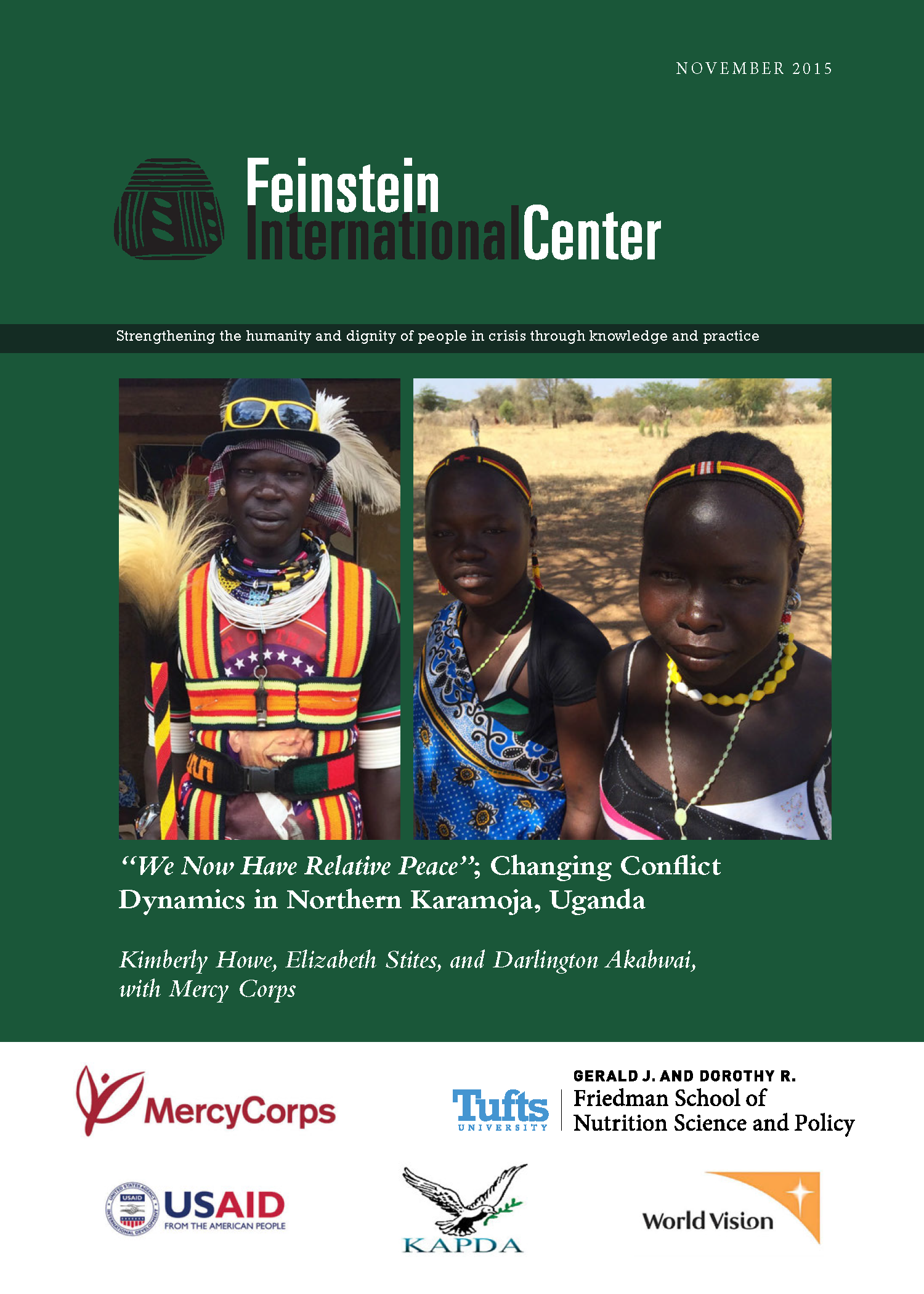This study provides a nuanced understanding of the transformation of violence for women, men, girls and boys in northern Karamoja at the household, community, district and the regional levels. Drivers of insecurity, as well as access to and the perceived efficacy of conflict mitigation initiatives are explored. This study also examines intra-clan and inter-ethnic relationships, as well as the ties between residents and various conflict mitigation actors. We find that the overall security situation in northern Karamoja has improved due to the decline of large-scale cattle raids, and that inter-ethnic relationships have improved. Currently, the major threats to security exist within households and villages and include theft of assets committed by lonetia “thugs”, sexual and gender based violence in the form of domestic violence and forced marriage of girls. The study concludes with a comprehensive set of recommendations for donors, policymakers and practitioners.
“We now have relative peace”: Changing Conflict Dynamics in Northern Karamoja, Uganda

November 2015
ASSOCIATED PROJECT
SUBJECTS
PUBLICATION TYPE
LOCATION
RELATED PUBLICATIONS
This desk study explores how state-owned policies and programs in pastoral areas of the Sudano-Sahel and the Greater Horn of Africa meet pastoralists’ needs and priorities.
•
October 2024
This report outlines an anticipatory insurance product designed to support farmers in the drought-prone regions of Malawi and Zambia.
•
August 2024
The time pressure involved in designing and implementing anticipatory action can discourage the localization of decision-making. Learn more from a cartoon-infused summary of insights.
•
July 2024
Early Warning Systems can reduce deaths and damages caused by extreme weather events, if investors address gaps in communication and planning. Learn more from a cartoon-infused summary of insights.
•
July 2024
This synthesis report reflects upon Phase 1 findings on humanitarian action in pastoral drylands of the Greater Horn and Sudano-Sahel.
•
June 2024
This desk study examines common perceptions of pastoralism among humanitarians and barriers to international humanitarian systems meeting pastoralists’ needs.
•
June 2024






